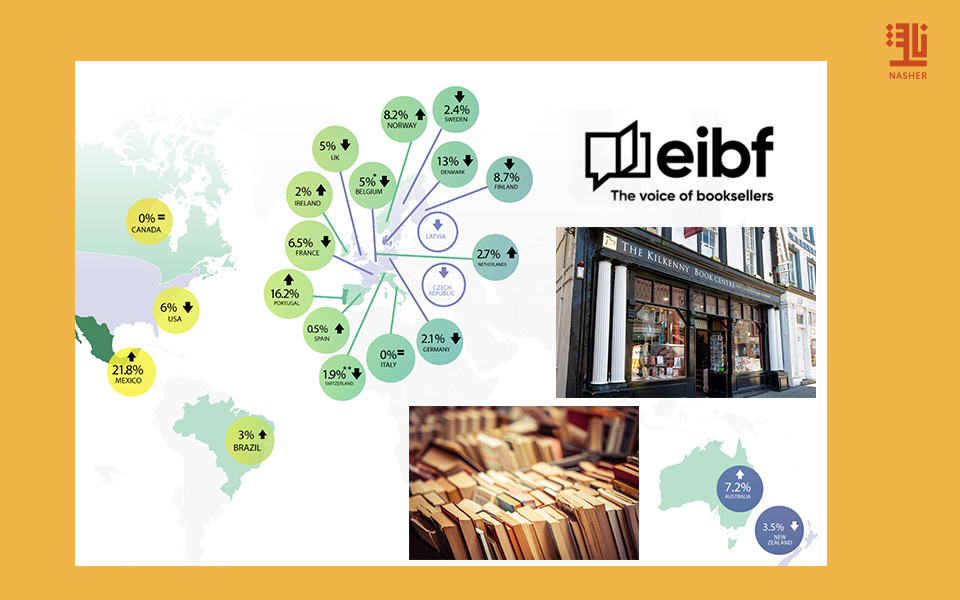Book sales surged in the Netherlands, Mexico and Portugal during 2022, but declined in the US and France. That is the assessment of the European and International Booksellers Federation (EIBF) in its latest report on global bookselling markets.
2022 was a year of transformation and transition for the bookselling industry, following two unprecedented years of disruption. When looking at the overall book sales numbers from all the analysed markets, the EIBF observes two distinct trends across the globe. Half of the analysed markets experienced a clear decrease in book sales in 2022, while the other half reported stability and, in some cases, a positive development in turnover.
Broadly speaking, this decline can be explained by two main factors, the report says. On the one hand, the exceptional circumstances in 2021: after months of closure, bookshops reopened, boosting sales to a 10-year high, especially at Christmas. Thus, if 2022 sales data still display some positive and encouraging results, they appear very modest when compared to the preceding year. On the other hand, the inflation rising throughout 2022 and the energy crisis, partly caused by the outbreak of Russia’s invasion of Ukraine, has limited readers’ purchasing power, as well as pushed up production costs within the sector.
The report notes that when a closer look is taken, the performance of each of the analysed markets has been very diverse. In some cases, the complete return to physical spaces has boosted brick-and-mortar sales, while for digital sales, several of the analysed countries report more modest numbers than in 2021.
The report is based on a survey carried out by EIBF over the past semester. National booksellers associations and EIBF associate members from sixteen countries have responded to a questionnaire, providing an insight into the state of play of their respective markets and the potential directions that the sector could be heading in.







